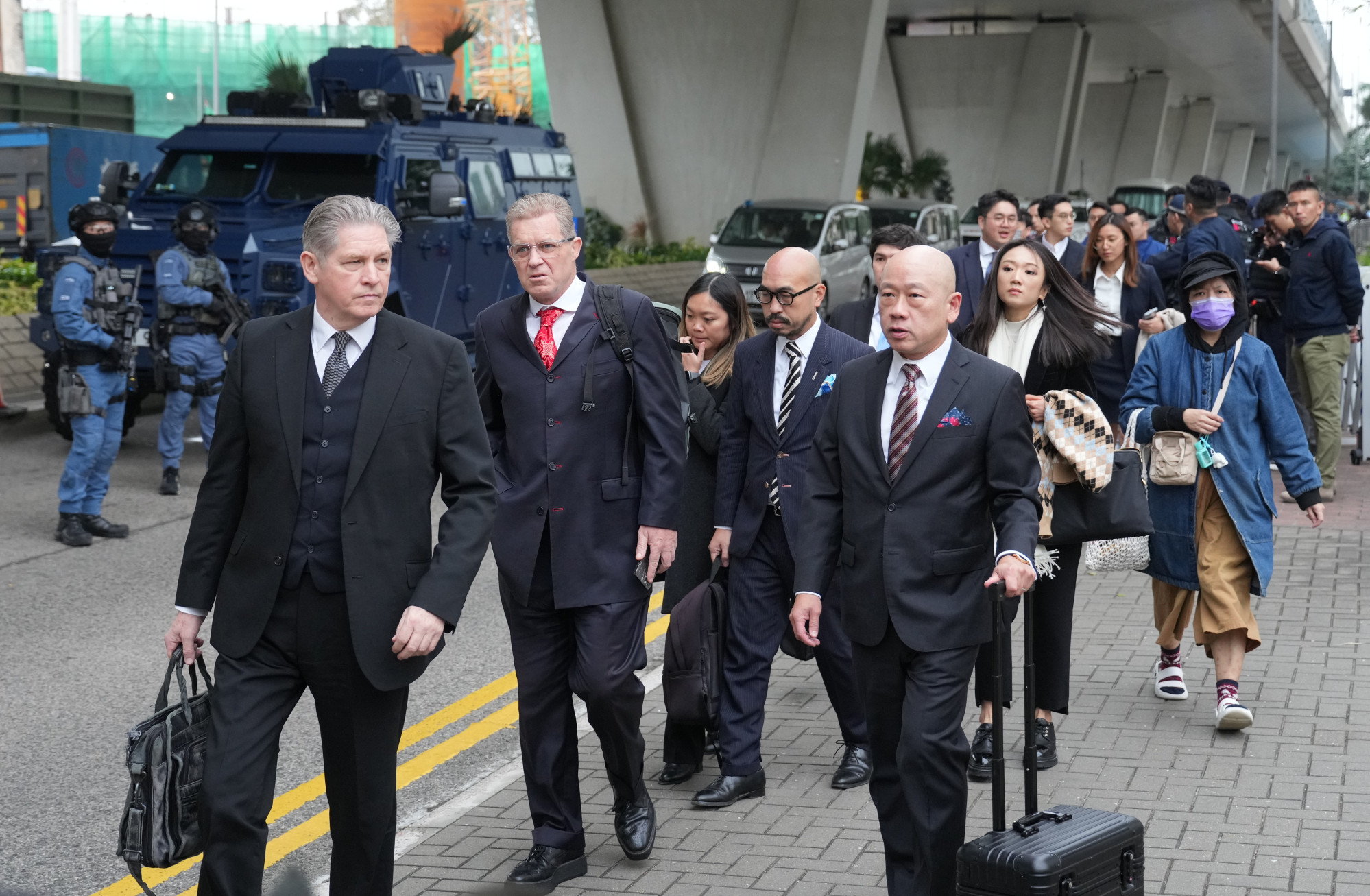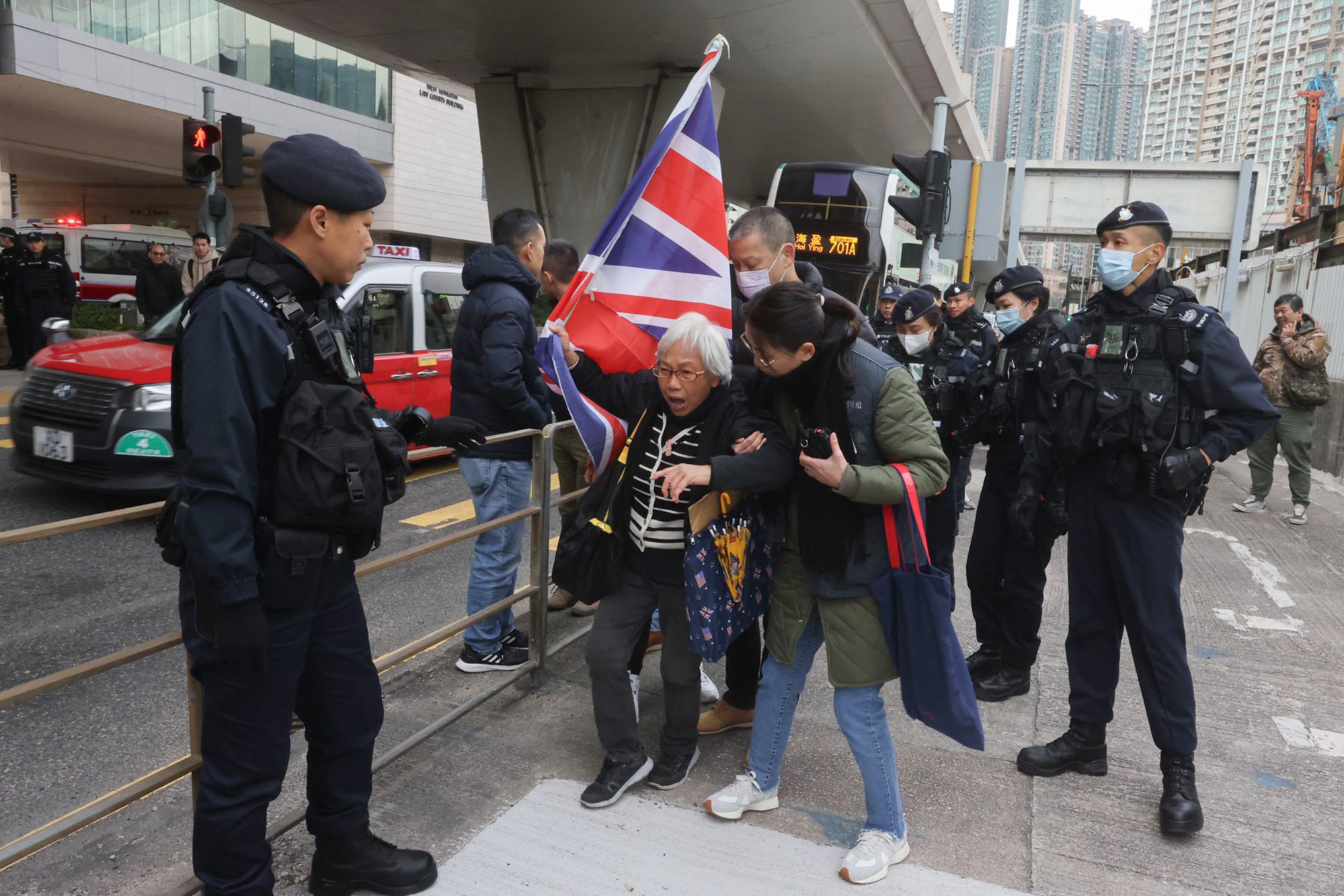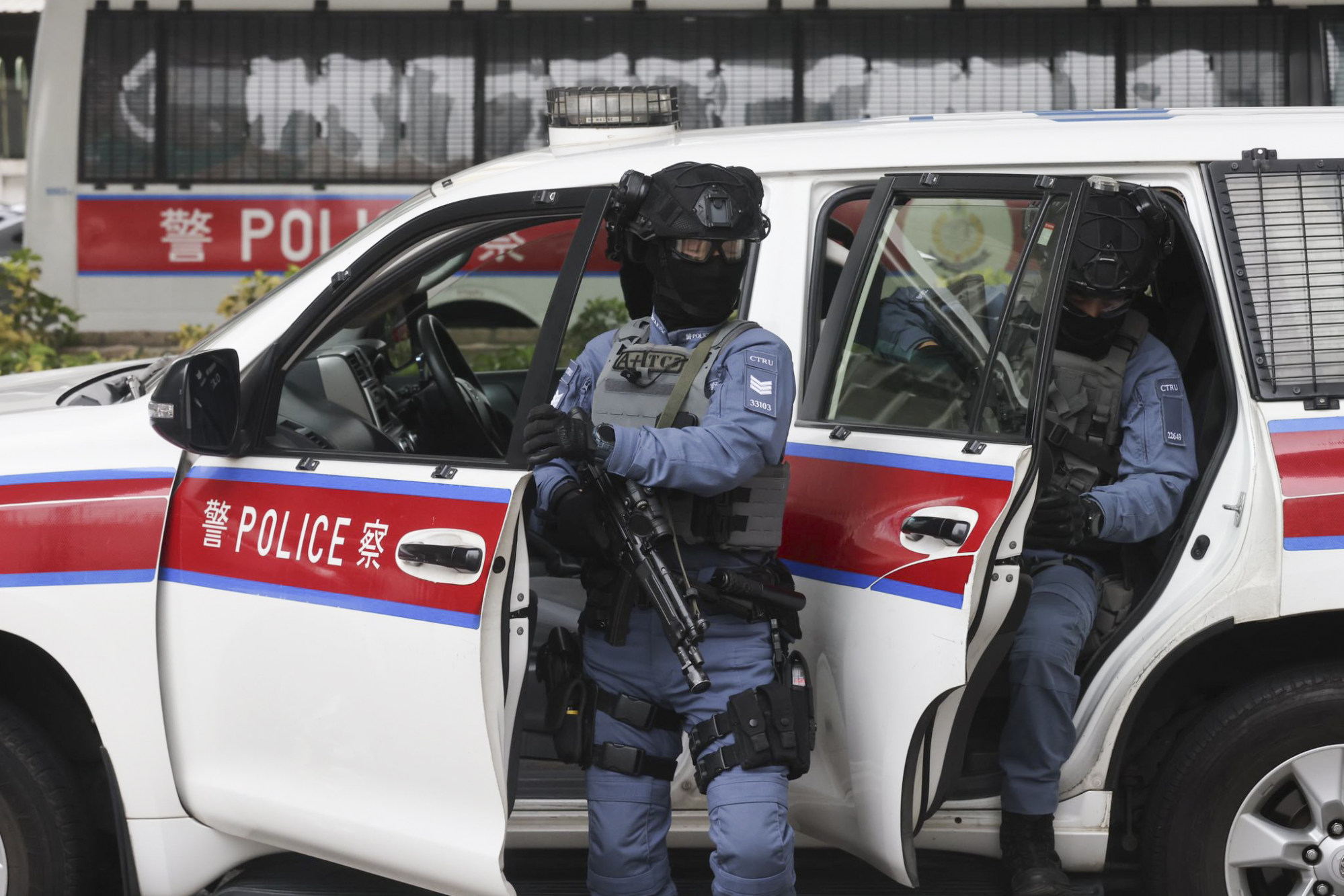
Jimmy Lai trial: Hong Kong court rejects tycoon’s request to dismiss sedition charge in national security case
- Trial adjourned until January 2, when court is expected to formally record Jimmy Lai’s plea and hear prosecution’s opening statement before witnesses take the stand
- Lawyers for media tycoon had argued the charge was filed after the expiry of a six-month time limit
Lai on Friday returned to West Kowloon Court before 8am, appearing a few hours later in front of three High Court judges to hear their ruling ahead of the next stage of his 80-day trial.
Wearing a navy blue blazer and a white cloth around his neck, Lai nodded and smiled at his family upon entering the dock.
Madam Justice Esther Toh Lye-ping said the bench found prosecutors had not violated criminal procedures when they laid the sedition charge against Lai, dismissing contentions by the tycoon’s legal team that it was filed too late.

Lawyers for the 76-year-old founder of the now-defunct Apple Daily tabloid earlier asked the judges to strike out the count relating to the newspaper’s allegedly seditious publications between April 2019 and June 2021. They argued the charge was laid after the expiry of a six-month time limit for filing a complaint under the city’s criminal code.
Apart from the sedition charge, Lai is also facing two conspiracy charges of collusion with foreign forces under the national security law for allegedly using Apple Daily and an anti-China lobbying campaign to attract international sanctions against Beijing and Hong Kong officials.
The same charges also target three Apple Daily companies, which are represented in the trial by a separate set of lawyers.
Toh adjourned the trial until January 2, when the court is expected to formally record Lai’s plea and hear the prosecution’s opening statement before witnesses take the stand.
In contrast to the trial’s opening days, when dozens of people queued outside the court building early in the morning to get a spot inside, fewer than 10 were there before 8.30am.
Police were out in numbers for the trial’s third day, with armed and plain-clothes officers on patrol outside, while the force set up roadblocks and searched cars entering the building.
Some foreign consulate representatives arrived at around 10am, shortly before Lai’s wife Teresa Li Wan-kam, son Augustin Lai Zhun-yan and daughter Claire Lai Choi appeared.
Veteran activist Alexandra Wong Fung-yiu, popularly known by her Cantonese nickname “Wong Po Po” or “Grandma Wong”, arrived at around 8.45am carrying her signature British Union flag.

She was surrounded by several plain-clothes officers, with more than a dozen armed police arriving later. She chanted slogans of “Mr Lai, add oil” when a prisoner vehicle passed by. Wong was taken to a spot opposite the court building, where she continued to wave her flag.
In court, the debate has so far centred on the correct construction of the Crimes Ordinance, which requires prosecutors to lay a sedition charge within six months of the alleged transgression.
Lai’s legal team, led by Robert Pang Yiu-hung SC, said the prosecution should have filed the sedition charge by October 2019, within six months after the first alleged breach.
They contended the statute required authorities to expedite the prosecution of sedition offences as a judicial safeguard against excessive inroads into personal freedom.
The prosecution, represented by Deputy Director of Public Prosecutions Anthony Chau Tin-hang, urged the court to draw the line based on when the alleged conspiracy ended, and in Lai’s case, the deadline should be six months after Apple Daily’s closure on June 24, 2021.
They warned that a different interpretation would risk undermining their ability to make a criminal case and would run contrary to the spirit of the security law, which emphasises the effective suppression of offences endangering the country’s safety.
But Lai’s counsel argued that even if their opponents’ reading was found to be true, they were still four days late because the tycoon only had the sedition charge read to him in court on December 28 that year.

Prosecutors countered by saying they had started sedition proceedings by telling parties in writing of their intention to lay the charge on December 14.
In Friday’s ruling, the judges cited a 2011 Court of Appeal precedent where the bench decided the deadline for filing a conspiracy charge with a time limitation should be determined based on when the alleged scheme had ceased operating.
They highlighted the prosecution’s case which alleged Lai and his accomplices conspired to commit more than one illegal act over 26 months.
Lai’s counsel earlier urged the judges to disregard the appellate court’s ruling on the basis that it was “plainly wrong”, but the panel refused and said the higher court’s reasoning was “wholly convincing” and consistent with established legal principles.
The judgment continued: “We can see no unfairness or injustice to the accused if the time only starts to run from the last, rather than the first date of the conspiracy charge, so long as there is sufficient evidence to support the prosecution’s case that there was one single conspiratorial agreement covering the whole of the charge period.”
The judges also found no merit in the defence’s argument that a prosecution had “begun” or been “instituted” only after the charge was read to the accused in court.
They held that the start of criminal proceedings was based on when prosecutors laid out information about the nature and particulars of an alleged offence.
The panel was satisfied that prosecutors had, by way of correspondence, provided sufficient information to the court for the sedition charge on December 14, 2021, when the Department of Justice indicated it intended to amend the indictment to add the sedition charge.
A contrary reading of the law would lead to “surprising results”, the judges warned, raising a hypothetical scenario where a suspect might walk free if they could not appear in court before the time limit of prosecution expired because of being hospitalised, out of jurisdiction or absconding.
“Based on all of the above, the application of the defence must fail,” the judgment concluded.
Lai has been detained for more than three years since he was first denied bail in December 2020. Apart from this case, he is serving a 69-month jail sentence on fraud charges stemming from the improper use of Apple Daily’s office space.

